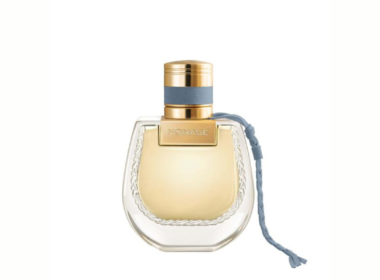In a time when consumers are increasingly conscious of the environmental impact of their purchases, brands must adopt and demonstrate sustainable practices to gain trust and credibility. How do consumers ensure that the growing number of brands that claim to be safe and cruelty-free are not just trying to sell? There might be a growing case of “sustainable by association” and not by doing the due diligence. The topic of sustainability is the new fashion, and everyone wants to wear it. Being recognised as a truly sustainable brand requires adherence to firm standards and obtaining relevant certifications. Here’s a comprehensive guide to the key certifications and sustainability checklists brands must meet to be recognised as sustainable.
What you need to be recognized as a truly sustainable brand: Sustainability Checklist
To be recognised as a sustainable brand, companies must meet a comprehensive sustainability checklist that addresses environmental, social, and economic dimensions. Here’s a detailed checklist:

Environmental Sustainability Checklist
The first stop is to put measures in place for resource and waste management. This applies to all forms of brands, irrespective of their products and services. Brands should implement practices to reduce energy, water, and material usage, establish a system for recycling, composting, and reducing waste from renewable energy sources, and invest in energy-efficient technologies. Materials should be sourced responsibly, ensuring they are renewable, recyclable, or biodegradable. Measure and work to reduce greenhouse gas emissions across operations and supply chains.
Social sustainability is equally as important as the aforementioned. Brands should ensure fair wages, safe working conditions, and workers’ rights. Staff members are the cornerstone of a working brand. There should be a safe and healthy work environment for the team. There should also be a duty fulfilled for local communities through charitable initiatives, job creation, and social programmes.
Economic Sustainability
To the brand’s great advantage and overall economic growth, they should adopt ethical business practices such as transparency, integrity, and accountability in business operations.The goal should be to establish business practices that are economically sustainable, thereby promoting long-term growth and stability, which should subsequently be open to innovations and improvements to reduce environmental impact.
Product Lifecycle

Product designs should be created with their environmental impact in mind, focusing on durability, repairability, and recyclability. The utmost concern at all times should be the impact of decisions made on products and how they affect the environment. Adoption of sustainable packaging through the use of minimal, recyclable, or biodegradable packaging materials and agendas for product take-back, recycling, and responsible disposal are also essential. Consider a sustainable product design practise.
Key Certifications for Sustainable Brands
B Corporation (B Corp) Certification
B Corp Certification is awarded to companies that meet the highest standards of verified social and environmental performance, public transparency, and legal accountability to balance profit and purpose. To acquire this, companies must achieve a minimum score on the B Impact Assessment, which evaluates performance across categories like governance, workers, community, environment, and customers.The certification process involves completing the B Impact Assessment, meeting legal requirements, and undergoing a verification process.
LEED (Leadership in Energy and Environmental Design) Certification
LEED is a globally recognised certification for green building and sustainability in the construction industry. Projects earn points across categories such as energy efficiency, water conservation, sustainable site development, material selection, and indoor environmental quality. The certification process involves registering the project, submitting documentation for review, and achieving the necessary points for certification levels (Certified, Silver, Gold, or Platinum).
Fair Trade Certification
Fair Trade Certification ensures that products are made with respect for people and the planet, focusing on fair wages, safe working conditions, and environmental sustainability. Standards vary by product but generally include fair wages, safe working conditions, direct trade, community development, and environmental sustainability. To get certified, organisations must apply, undergo audits, and comply with Fair Trade standards.
Global Organic Textile Standard (GOTS)
GOTS is the leading certification for organic textiles, ensuring that products are made with organic fibres and meet environmental and social criteria. Standards cover the entire textile supply chain, including organic fibre sourcing, environmentally and socially responsible manufacturing, and labelling. The certification process involves an annual on-site inspection and audit to ensure compliance.
ISO 14001 Environmental Management
ISO 14001 is an internationally recognised standard for environmental management systems (EMS), helping organisations improve their environmental performance.Requirements include establishing an EMS, setting environmental objectives, and implementing policies and procedures to manage environmental impacts.Certification involves an independent audit by an accredited certification body.
Other Sustainability Certification:
More Like This:
From Lunae to Stele” by Gioni David Parra at Cris Contini Contemporary











